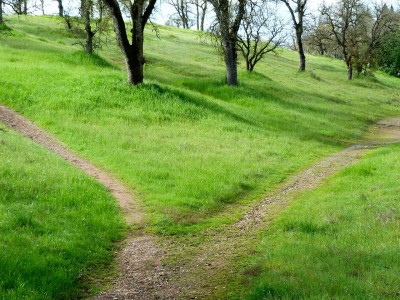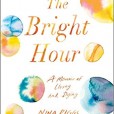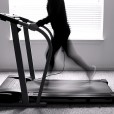This is the first in a (probably) five-part series of essays.
For about two years, until January, I felt a disturbing lack of ambition. I felt directionless and passionless; devoid of my usual neverending energy and interest. I chalked it up to mid-career malaise, but it was more than that. Having only in the past suffered from major depressive episodes, I didn’t recognize that at least part of what I was feeling was depression. Depression is insidious like that — it sneaks up on you, coils itself silently around your life in a way that feels inevitable. It’s very easy to mistake low-grade depression for burnout. I only realized that what I was feeling was dysthymia when I came out of it and I only came out of this when I thought I was going to die.
In late-December, I started to feel burning and pain around where my heart is. I also found that when I would exercise, my heart rate would shoot up to an absurdly high number and wouldn’t go down for many hours afterwards. I could feel my heart racing even when I was lying in bed and thought every time I went to bed that I might not wake up again. It was extremely alarming. After a bunch of doctor visits, tests, and some pretty heart palpitation-inducing bills (thanks high-deductible insurance plan!), I found out that I’m healthy and my symptoms were likely caused by pericarditis or possibly from a migraine prevention medication that I’d started taking in November but had quickly stopped taking because of other side effects. By February, the symptoms were totally gone and I felt like an enormous weight had been lifted off of me.
Thinking I might die jolted me out of the quicksand I’d been slogging through and I felt lighter again. I started questioning things in my life in a more mindful way — why I do what I do, why I feel the way I do, how I spend my time and how it impacts me, etc. I will fully admit to not being the most observant or self-aware person (due, in large part, to the tunnel vision anxiety creates), but I started to slow down and unpack my thoughts and feelings. I started using social media less because I struggled to see the good I was getting out of it (I’m still wrestling with this — more on that later). I became more aware of my body too. Before, I’d sit for ages, engrossed in my work and totally unaware of how my body was situated and feeling. Not surprisingly, I had lots of aches and pains and tension headaches. I’d exercised on the elliptical 3-4 times per week for years, but I started doing a lot more (and a greater variety of) exercising. I’ve had a lot of knee problems over the years that sometimes made me unable to exercise at all and I feel like I finally understand how to exercise hard without hurting them. The fact that I can hold my body up in a side plank with one arm for a a couple of minutes now is something I never, ever, believed I could do. I’ve spent more time walking and hiking outside, enjoying the natural world around me. For the first time ever, I feel physically strong and am much more at home in my body than I’ve ever been before.
I can’t imagine that I’m the only woman who has felt so out of touch with her body. I feel like our society tells women that our body is something that can get us into trouble, something that will betray us, and something we should be ashamed of if we don’t measure up to a ridiculous and unhealthy standard. For so long, my body was this thing I dragged around; this inconvenience that occasionally kept me from getting shit done. I certainly didn’t listen to it. It took well over a decade of having migraines before I discovered the things that triggered them — some of which I could easily remedy. I’ve also become more aware of the physical manifestations of anxiety, how they impact me, and how to combat them. I spent so much time trying to muscle though chronic pain and anxiety rather than giving my body and mind what they needed. This winter, for the first time ever, I asked for a very small and inexpensive accommodation at work to help with my migraines and asking for it was deeply awkward and uncomfortable for me. (And if I, in my privileged position had such difficulty asking for a relatively minor accommodation, imagine what it’s like for people in more precarious positions or for those who need more extensive/expensive accommodations.)
I feel like I spent so much of my life on auto-pilot, just grinding and grinding towards something I couldn’t quite see or define. High school, college, grad school, career, family. Anxiety was largely what propelled me forward — I was always trying to fill this hole inside me. This led to overwork — to overcome the stigma of depression, to seek approval, to feel better about myself. Maybe if I did enough, achieved enough, worked hard enough I would fill that hole, but every achievement made me feel more like an impostor rather than less. Mostly, it didn’t make me feel better; just exhausted. I never felt like I was doing enough.
I recently finished the absolutely charming and escapist summer read Red, White, and Royal Blue and the main character, Alex, describes a similar feeling:
If I keep looking directly ahead, that stuff [(painful memories/feelings)] can’t catch up to me. Or if I take this class, or this internship, or this job. I used to think if I pictured the person I wanted to be and took all the crazy anxiety in my brain and narrowed it down to that point, I could rewire it. Use it to power something else. It’s like I never learned how to be where I am.
“I never learned to be where I am.” That’s it. For years, I was focused almost entirely on my career. Before my son was born, when I wasn’t at work, I was still working — creating presentations, writing, doing professional service, and blogging. I was tied to a computer for nearly all of my waking hours. There was no such thing as work-life balance. My husband owns his own business and his worklife bled into his homelife back then too, so it didn’t feel so weird at the time. But quality time in a young marriage is not spending time sitting next to each other on separate laptops. That lack of focus on both our parts nearly wrecked our marriage, and it took years for us to learn how to be present with each other. And having a baby and toddler for me was so difficult, not only because of postpartum depression, but because I couldn’t devote as much time as I thought I should to my work or to my child, making me feel like a dismal failure in both roles. I was never satisfied where I was at any particular moment. It was, I was, never enough.
Depression is a jerk who gaslights you into believing all the worst possible things about yourself. When good things happened, I felt embarrassed by the random luck I perceived as having given me these things I didn’t deserve. When bad things happened, it was as if I suddenly believed in the prosperity gospel and saw them as confirmations of my bad character. Why did I feel this way? My childhood left me believing I was fundamentally unlovable and undeserving and that nothing I did was good enough. When I think about how enthusiastically I celebrate every one of my son’s achievements I realize that I’m trying to make sure he never feels that way. I want so much for him to be proud of his achievements.
I think depression and anxiety can also cause a great deal of want, which is another black hole in itself. You want to change things about yourself, to have things (love, success, money, etc.) that you think will make your life better in some way. I spent so much time wanting to be different and trying to fight against my true nature. All that wanting just leads us to either mourn a past that we think was somehow better or obsess over possible future happiness (frequently setting ourselves up for more disappointment). Either way, it keeps us from appreciating the moment we’re in. The lovely poet and author, Judith Viorst, has a terrific article about her happiness at age 90 that came largely from gratitude and enjoying the present moment.
When I was younger, I spent too much time obsessing over what would make me feel better or how I imagined a certain set of circumstances would magically transform my life and career. But I learned, though it took me a while, to look around and pay attention to what—if I’d let it—could make my life feel better right here and right now. My book Nearing Ninety opens with a wonderful quote from philosopher George Santayana, whose proposition all of us should heed: “To be interested in the changing seasons is a happier state of mind than to be hopelessly in love with spring.” I believe he’s telling us that instead of wistfully looking back at what we once had, or anxiously imagining what might come, we ought to be seeking what satisfactions, what pleasures, what meaning, the season we’re in has to offer us.
I feel like so much of our unhappiness comes from how we are programmed from birth in the United States (and in many other countries that share these dubious values). The focus on achievement, productivity, status, and traditional markers of success pushes many of us toward lives that may not be what we’d have chosen in the absence of these pressures. Heather Havrilesky put it well in her book What if This Were Enough:
From the day we are born, the world tells us lies about who we are, how we should live, and what we should sacrifice to cross some imaginary finish line to success and happiness. More powerful than the outright lies we’re told, though, are the subtler, broader poisons of our culture, how we ingest and metabolize them until they feel like a part of us, yet we still can’t figure out why we’re sick.
All those lies about who we are shape who we become and the choices we make. I often wonder about what kind of a life I’d have had if I had been born 15-20 years later, now that being bisexual (and that term feels so wrong and outdated given that gender is far from binary) is less stigmatized than it was when I was becoming me. By the time I got to my mid-20s, I chose the smoother path; the one my parents wanted for me, the one society wanted for me. And it’s not like I regret anything or am unhappy with the life I have (while I chose to date men with my head, my heart chose Adam, in whom I saw a kindred spirit and the first person with whom I could truly be myself), but the question in the back of my mind remains: who might I have been had I not chosen a life based, in part, on wanting approval from others? Or who might I have become had those negative messages not been so omnipresent?
I’ve spent a lot of time over the past few years trying to unpack, interrogate, and separate out what desires are really mine and what are the things I do because it’s what I think I should do. There are so many things I’ve stopped doing or striving for because I realized that I wasn’t motivated by my own authentic desires, but by a desire to fit into a community of which I’m a part, to fill a perceived hole in my life, or just because I think it’s what I should want to do. It’s been tremendously liberating to let go of these things though I had to also struggle with the assumption that not doing those things made me a bad mother, a bad wife, a bad neighbor, a bad Portlander, a bad librarian, a bad colleague, or a bad woman. In the end, each thing I’ve let go of has been a weight off my chest. I feel so much lighter.
I’ve also been thinking about what I want my career to look like as a mid-career librarian. Mid-career is a funny place. I’m incredibly privileged to be in a stable job I mostly love (with completely amazing colleagues) that I want to keep for the foreseeable future. I don’t have a desire to move up, to move out, to be noticed, to win awards, or to have the spotlight. And that lack of hunger when you’ve always been so, so very hungry is both liberating and freaking scary. You have to find the things that you’re truly excited about because there is no specific path. Lee Skallerup Bessette writes about this phenomenon in her essay “Mid-Career” for Inside Higher Ed:
Now what” used to be what’s the next step up, the next step towards a better salary, a better institution, more job security, leadership roles. I was always, always looking out – looking out for what’s out there, what’s next, what’s coming, what opportunity I could jump on. But now, I don’t have to. I have to look up, look in. I have to look at where I am, who I am, and who I want to be here. I’ve never been in this space before, personally or professionally. My boss recently asked me what my goals were for this year, and I was at a loss. What do I want to do? I have the opportunity to plan long-term, and I am overwhelmed. What’s next?
While my life now is not materially very different than it was a year ago, my attitude towards it is, and that feels like a sea change in itself. My next four blog posts are going to be focused on the societal traps we sometimes fall into that keep us from being happy, fulfilled, and true to ourselves. I’ve been doing a lot of reading over the past six months about being at mid-career, achievement culture, ambition, productivity, the attention economy, gratitude, and happiness. I don’t pretend to have all the answers and my path isn’t necessarily the one that’s right for you, but my blog has always been about sharing my learning from both my successes and missteps, and what I’ve learned from the journey I’m on now might just be useful to someone else. I’d also love to hear about your own inner journeys!
Up next — “Ambition: You are Not Enough.”







I appreciate your thoughts. I am four years past tenure and having similar feelings. Will now try to distinguish between things I want to do and things I think I should be doing. Thanks again
Thanks Thomas. It’s definitely a lot easier to do this kind of thinking with the privilege of tenure (or in my case “continuous appointment”). I recognize the privilege I have at this point in my career makes it possible for me not only to think about changes, but to really make them. Good luck with your own journey!
Thanks for this! I am not in my mid-career but I’ve felt this way ever since graduating college over 10 years ago and becoming a librarian 7 years ago. I was such an achievement oriented person for most of my life until I understood how much it fed my anxiety and depression and didn’t lead to the happiness I expected. Now that I’m a new mom, I’m struggling with this again. Nice to know I’m not alone!
Definitely not alone. I really found the new mom thing difficult early on — negotiating a new identity that melded my professional-self and my mom-self. It took me a long time to integrate those selves and feel like a whole person, but I was very, very hard on myself. My only advice to new moms is to be kind to yourself — you’re doing a great job and babies are tremendously resilient. 🙂
Thanks for sharing your thoughts and feelings here, Meredith. I’m a retired San Jose Public reference librarian who has followed you and your career over the years. Having obtained my MLS from SJSU in 1986, I kind of observed a younger generation of librarians with much more drive and ambition than I ever had. I cheered you on while wondering when or how you might burn out. I think your newfound insights will help you tremendously, while adding to your already numerous contributions to librarianship. Keep up the good work – on yourself as well as on your career!
Thanks for the kind words! It means a lot!
Thanks so much for this. It is so helpful and encouraging to have someone articulate these very relatable experiences so well.
Good stuff, Meredith, keep on being you! Off to read post #2.
Thanks Paul! Your encouragement has always meant a lot to me.